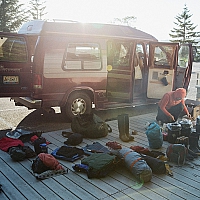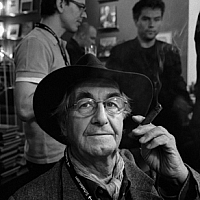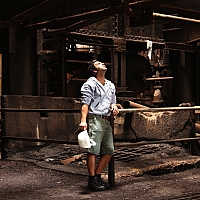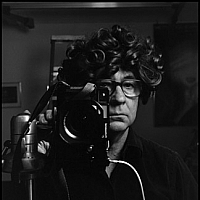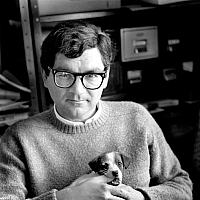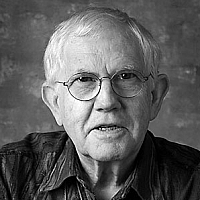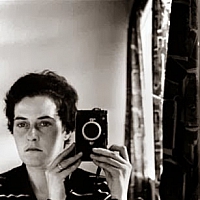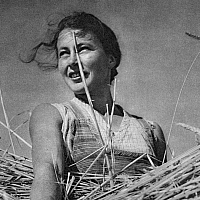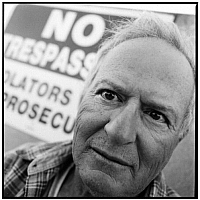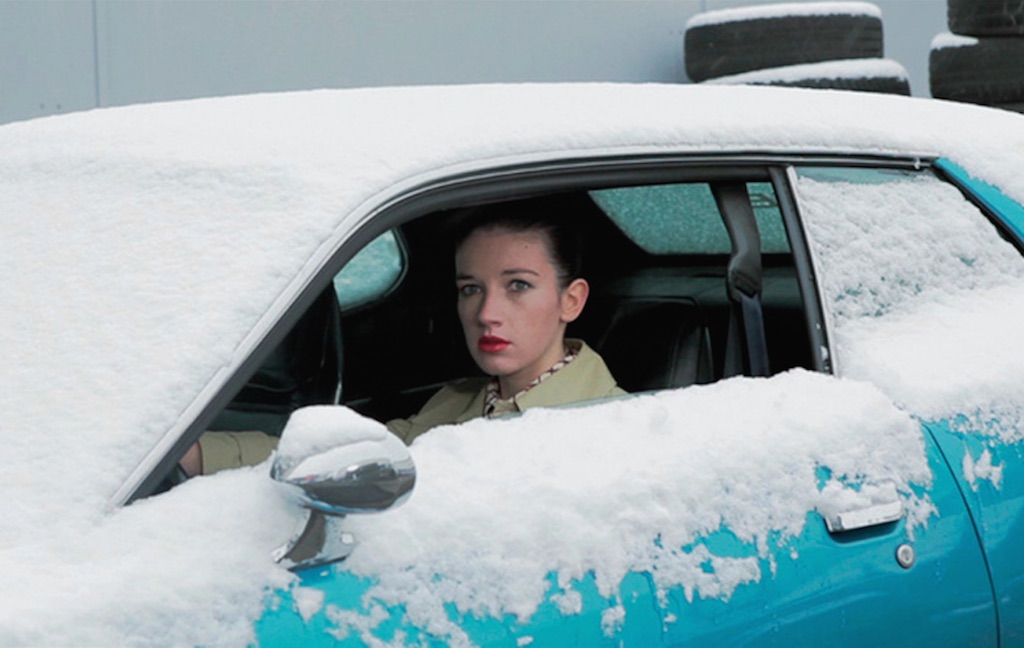
© Claudia Imbert, Le Garage
When Elliott Erwitt, during and after the depression era, photographed those rolling dreams with his candid sense of humor and irony, cars, especially the very large and imposing ones, were already a landmark in the American landscape. When René Burri travelled to Brazil to document the building of modern cities, one of his most stunning photographs, «Men on a roof top, Sao Paulo, 1960», is a view of the rush hour traffic on a busy street. Simone Kappeler, another Swiss photographer, drove through America in 1981, 30 years after her fellow countryman Robert Frank, and took pictures with her Hasselblad, a Polaroid and cheap toy cameras like Diana. She saw America in color, influenced by American movies and photography. Symbol of the American dream, of the rise of the middle class and of individualism through the whole XXth century, cars appear in a great amount of photographies.
With the rise of Street Photography, cars were bound to peep out on most photos taken. Still cars are photographed not only as a transportation device through the packed streets of cities or in the great outdoors emptiness but also as a traveling place of intimacy in the public space, where people talk, eat, sleep, love, as in a ever moving home. For photographers, cars are elements of decor, mechanical sculptures with their own modern esthetic, frames that echoes the camera’s viewfinder but also boxes where small scenes take place between people as in a moving theater. Cars ends up belonging to a cinematographic imaginary and become a subject for their own esthetic qualities of machines and the symbolic of speed, power and freedom they convey.

